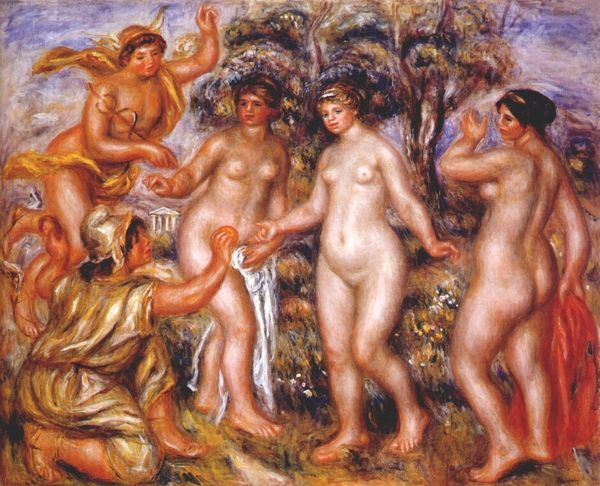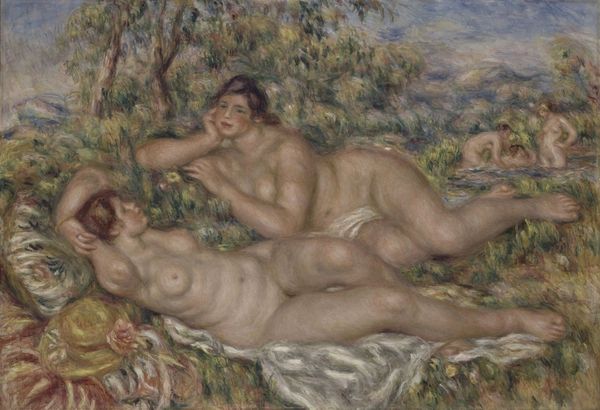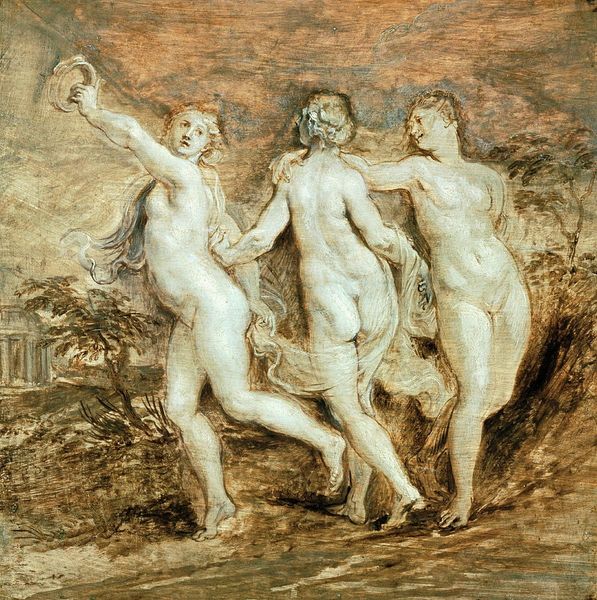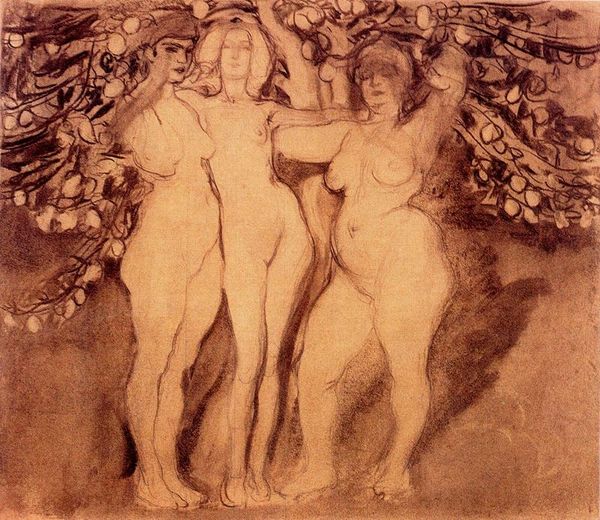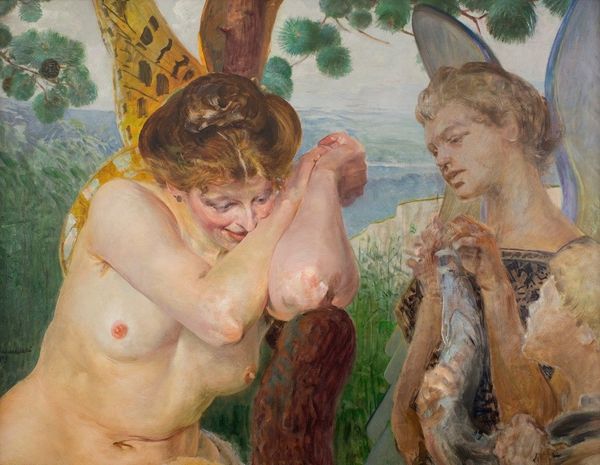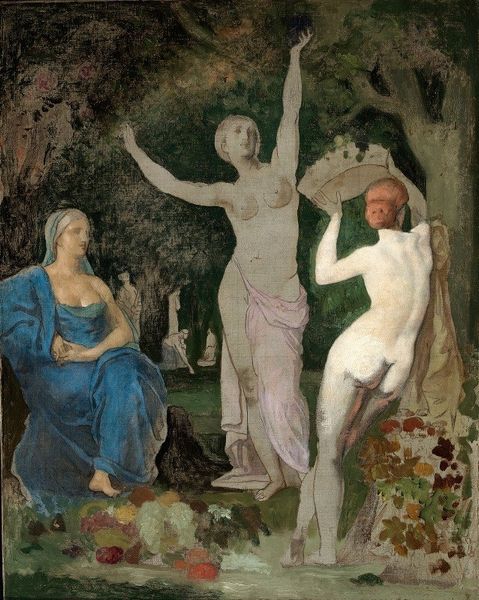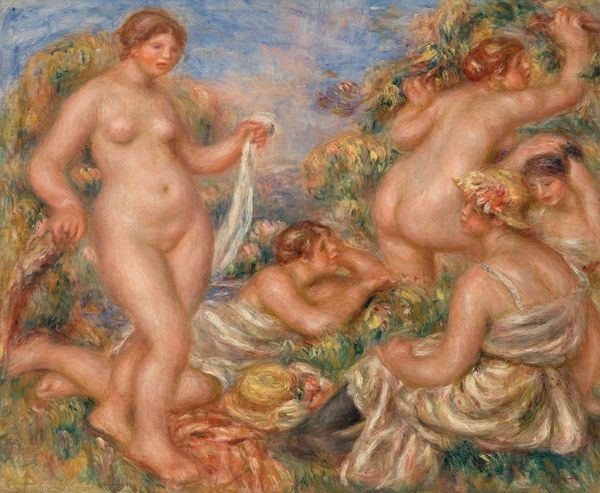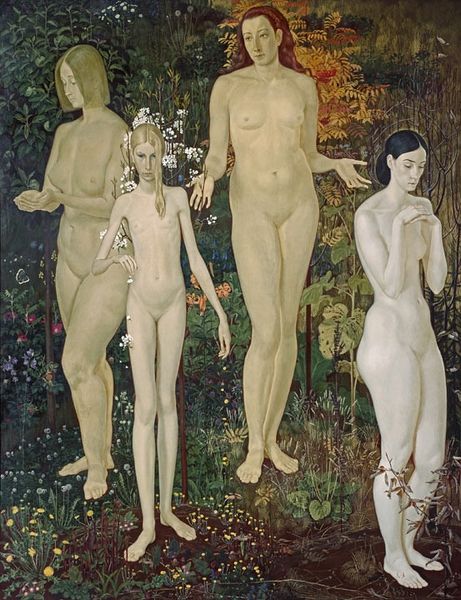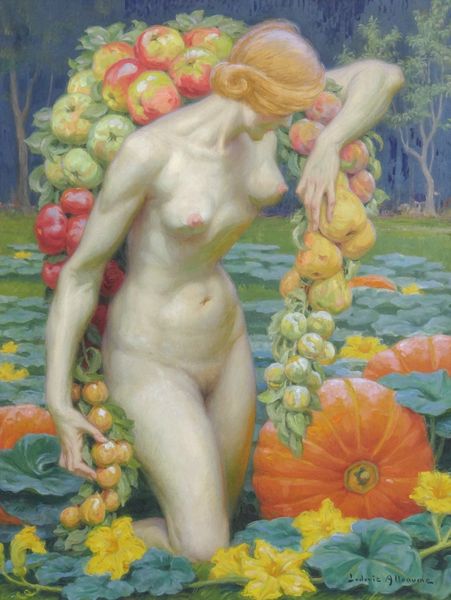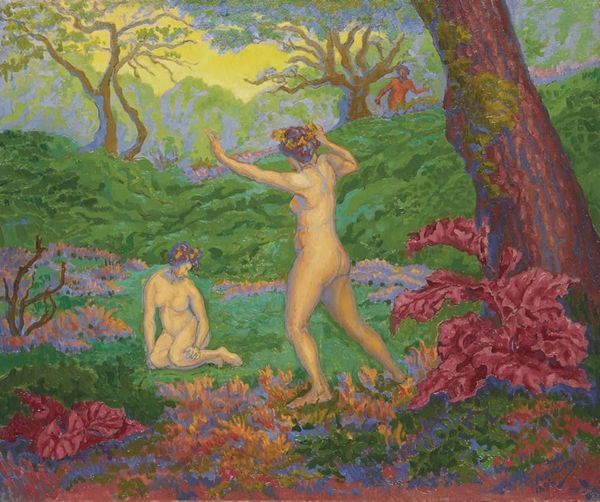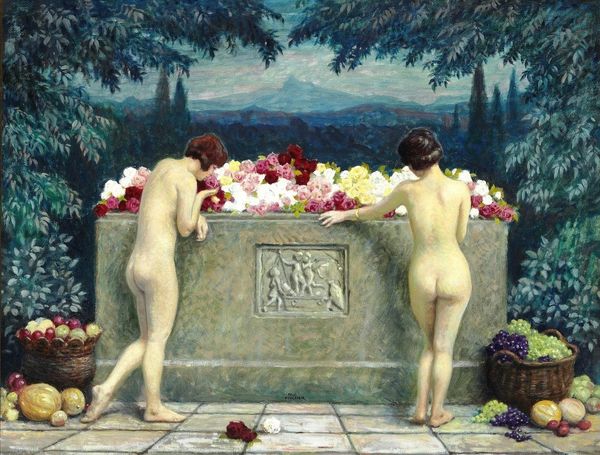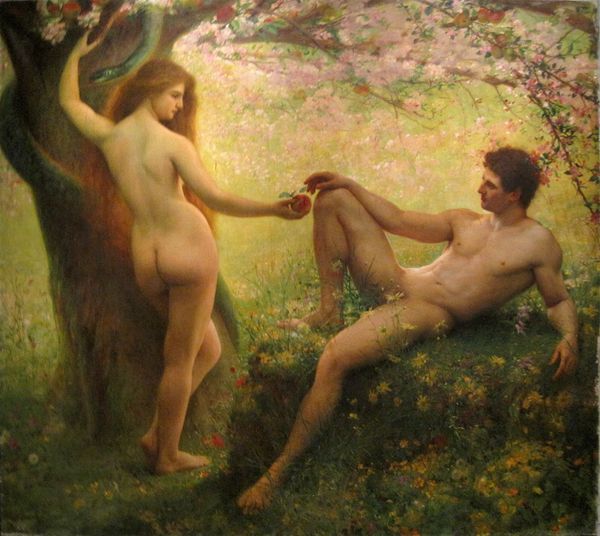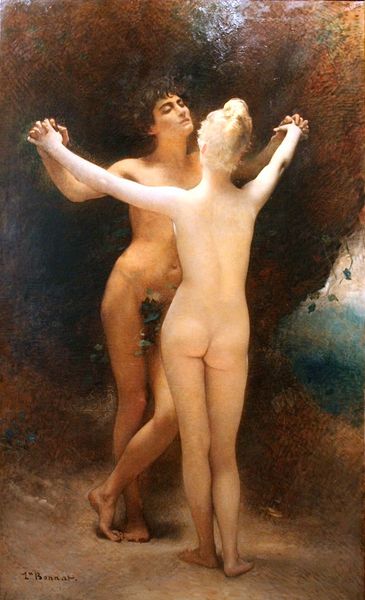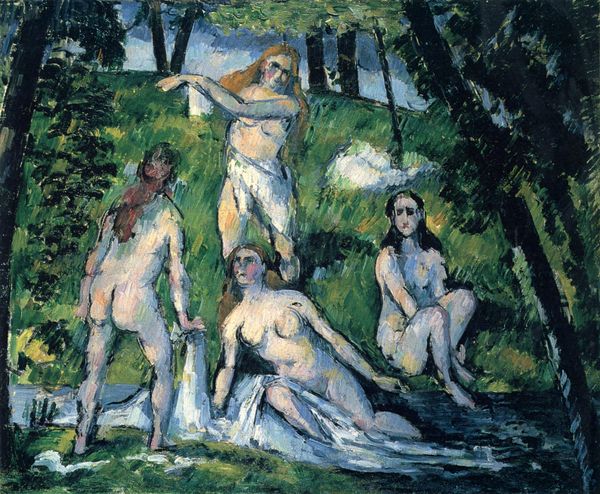
oil-paint
#
allegories
#
allegory
#
oil-paint
#
painted
#
oil painting
#
female-nude
#
symbolism
#
genre-painting
#
nude
Dimensions: 103 x 117 cm
Copyright: Public domain US
Editor: This is Frantisek Kupka's "Autumn Sun, Three Goddesses," painted in 1906 with oil paint. There’s a striking vulnerability in the poses of these figures. What strikes me most is how they seem caught between classical ideals and a very real, embodied existence. How do you interpret this work? Curator: What I see here is Kupka engaging in a fascinating dialogue with tradition. The classical trope of the Three Graces, of course, immediately springs to mind, but filtered through a decidedly modern lens. We should consider how this painting reflects the socio-political context of its time, specifically the burgeoning feminist movements challenging conventional representations of the female body. How might we understand the figures' non-idealized bodies as a quiet act of resistance? Editor: So, the painting challenges conventional beauty standards, perhaps even making a statement about body positivity, especially considering the time it was painted. But doesn’t the nude form in art also carry a complicated history, particularly in terms of the male gaze? Curator: Precisely! The nude form is rarely neutral. While Kupka could be interpreted as subverting idealized beauty, we must also be critical about how the female nude has historically functioned within a patriarchal system. Where does the artist's intention intersect with the viewer's interpretation and pre-existing cultural biases? Think about the Symbolist movement to which Kupka belonged; it explored subconscious desires, anxieties, and gender dynamics through dreamlike imagery. Editor: That's such a complex lens through which to view it. So, beyond the surface-level beauty, Kupka uses symbolism to make a nuanced comment on the changing status and representation of women. Curator: Exactly! It’s a potent example of how art can both reflect and challenge the prevailing norms of its time, urging us to critically examine the narratives embedded within seemingly classical forms. Editor: I see so many more layers now; thank you!
Comments
No comments
Be the first to comment and join the conversation on the ultimate creative platform.
